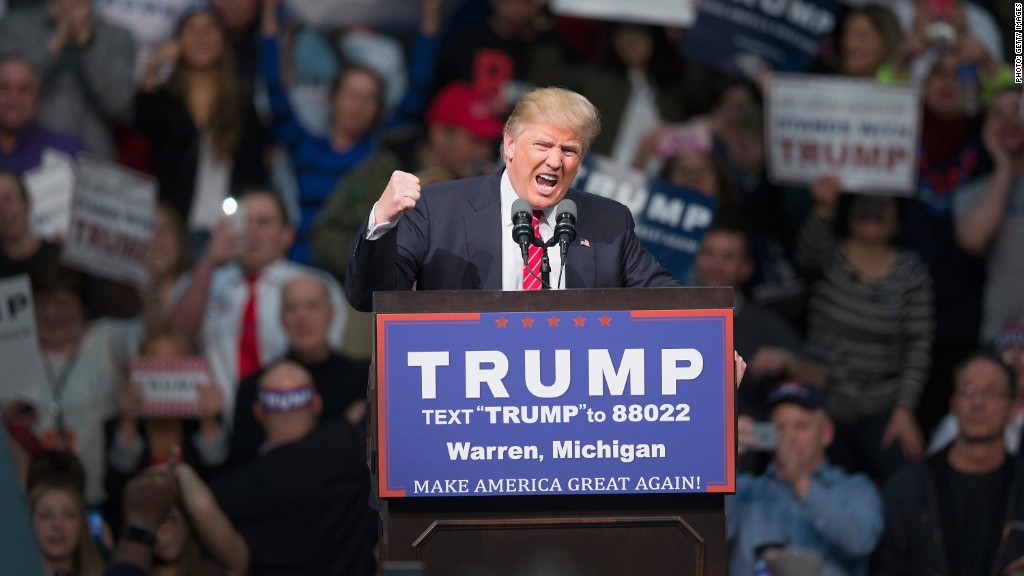
Hillary Clinton has done it. Tim Kaine has done it. Mike Pence has done it. And every presidential nominee from both parties has done it for the past four decades.
Yet Donald Trump still doesn't feel obligated to release his tax returns.
While he isn't legally required to, presidential nominees and their running mates have been making their returns public since 1976.
The latest: How Trump could have - legally - paid no taxes
Trump has said he isn't releasing his returns now because they're under audit, and that he will when the audits are done. But tax experts say that's no excuse -- an audit does not prevent him from making his returns public.
At his first debate with Clinton, he also floated this fallacy: "You don't learn that much from tax returns."
It's understandable why Trump might not want to do it. Why give every tax expert in the country an opportunity to point out what the IRS may have missed? Why give his political opponents and the media anything more to harp about?
But what suits Trump personally cannot be the deciding factor because he's no longer just a citizen and businessman who wants to protect himself from scrutiny. He's the Republican presidential nominee seeking what is arguably the most important public office in the world.
Related: A peek at Donald Trump's finances
Like it or not, voters have come to expect that those running for president -- and those in the Oval Office -- will be transparent about their finances.
That expectation is not just about figuring out how much a candidate makes and how much he pays in taxes. It's also about seeing how he makes his money and whether what he reports on his returns matches up with what he has said and done.
At the moment all we know from Trump is that he says he makes a lot of money ("I've done great"), that he gives a lot to charity (more than $100 million in recent years, his campaign has claimed), that he tries to keep his tax bill low ("I fight like hell to pay as little as possible") and that he's audited every year.
As many seasoned tax experts have noted, however, his tax returns would not only verify those claims but offer more context on the candidate as a citizen and businessman.
"These bits of information are important, putting hard data behind a candidate's breezy claims to probity, generosity, and honesty," wrote tax historian Joseph Thorndike.
Even if Trump just releases the top two pages of his 1040 plus his Schedule A, voters would see:
- How much taxable income he made
- How much he paid in taxes and his effective tax rate (taxes paid as a percent of income)
- How much he gave to charity
- What other deductions he takes (e.g., medical expenses, state and local taxes paid, real estate taxes, mortgage interest, etc.)
- How much income he made on investments (interest, dividends and capital gains)
- And whether he paid tax to any foreign governments.
Related: How much would Trump's tax returns reveal about any ties he may have to Russia
To learn whether and where Trump has foreign accounts or trusts, voters would have to see his Schedule B and related forms.
But one of the biggest windows into Trump as a businessman would be in his many Schedule Cs, which detail the profits, losses and expenses from his hundreds of businesses. On those forms he must declare whether he "materially participated" in a given business. In cases where he did, he could really reduce his tax bill because he'd be allowed to use losses from that business to offset taxable profits from other businesses or investments, said tax lawyer Steven Rosenthal, a senior fellow at the Tax Policy Center.
Beyond illuminating dollars-and-cents details and tax strategies, Rosenthal noted, Trump's tax returns would give voters a better sense of how Trump's proposals to reform the tax code would end up affecting his own tax bill as much as their own.
